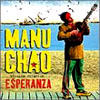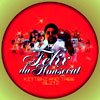
This Week: Some notable records from 2001 that may have been overlooked
Clarence "Tom" Ashley
Greenback Dollar (County Records)
On the first track of Greenback Dollar, Clarence "Tom" Ashley doesn't waste any time getting to the gist of it: "I met a Little Sadie and I blowed her down." When he's caught the next day, the narrator exclaims through Ashley's voice: "Oh, yes, sir my name is Lee, I murdered Sadie in the first degree, in the first degree and the second degree." There's no explanation of why he killed, or regret, just the facts that someone was killed and the world is brutal and coarse. He leaves us to try to come up with a why.
Recorded in Johnson City in 1929, "Little Sadie" and the rest of the songs on this compilation sound much older than that. In part that's because it's hard to listen to Ashley and not hear the history of what came before him and has come since. He was heavily influenced by African American music as well as old English ballads; in turn he heavily influenced Roy Acuff, who learned "House of the Rising Sun" from Ashley, and his clawhammer style of picking deeply moved Jerry Garcia.
All of these songs were recorded between '28 and '33, with a variety of groups—Byrd Moore & His Hot Shots, Blue Ridge Mountain Entertainers, Ashley & Foster, and the Carolina Tar Heels.
Although Ashley was an exceptional guitar and banjo player, it is his performance and singing that make these recordings stand out after more than 70 years.
One of the highlights—"Coo Coo Bird"—is ghostly in its simplicity and nonsensical lyrics. Ostensibly about card gambling, its chorus is a puzzle—"Oh, the coo coo is a pretty bird, she wobbles as she flies, she never hollers 'coo coo' til the 4th day of July."
Of course, it's easy to romanticize old-time music. Ashley's tendency to sing murder ballads had a lot to do with the fact that they were popular—"You could sell the old kill 'em dead songs," he said.
Still, I've heard few songs as weird and creepy as "Coo Coo Bird." That alone is worth the price of this CD.
—Joe Tarr
Manu Chao
Esperanza (Virgin)

Manu Chao was the founder of the groundbreaking French-Spanish ensemble Mano Negra, which released a handful of albums in the early 1990s (the standout is 1991's Puta's Fever). Mano Negra gleefully mixed European folk styles with Latin and Cuban rhythms, reggae and raw punk rock. On Esperenza, Chao's second solo album, he continues that high-octane blend, albeit in a more refined fashion.
Esperenza is even more Caribbean-flavored than past efforts, no doubt owing to Chao's wide travels in the mid-Americas over the past few years. The album has a sunny lilt to it, maybe best captured by the title of the lead-off single: "Merry Blues." He's happy even when he's sad. Chao loves a good hook, and the 17 tracks here are more than generous with memorable tunes. One advance from the Mano Negra days is his easy way with lovelorn ballads like "La Vacaloca" and "Mi Vida" (at least, they sound like lovelorn ballads—Chao casually jumps from Spanish to French to English, and there's no lyric sheet). Elsewhere, there's nightclub swing ("Trapped By Love"), mariachi ska ("Bixo"), Parisian cabaret ("La Primavera") and bouncing pop songs that defy further categorization ("Me Gustas Tu," "Denia"). Throughout, Chao uses the stable of carnival bells and whistles (often literally) that always made Mano Negra sound as much like a party as a band.
A lot of current "world music" hybrids come off as stiff and self-important. But Chao's blend isn't based on any sense of purpose except what sounds good to him, and that makes his music as hopeful for the future as it is joyous in the present.
—Jesse Fox Mayshark
Felix Da Housecat
Kittenz and Thee Glitz (City Rockers/Emperor Norton)

Hearing Felix Da Housecat blaring through the shower as a friend prepared for another night at the Electroclash Festival last October, I couldn't help but take notice: this was the dance music I've obliviously wasted my life waiting for. Though it was easy shelling out $22 for an import, Kittenz will finally be domesticated this month, released by Emperor Norton: the label that continues to reward us with Arling & Cameron, Takako Minekawa and Ladytron.
Like Ladytron (or Air and Figurine), Felix creates a hybrid of subtle aloofness. Retro-futuristic keyboards overlay real and sampled drums, sounding a bit like HollAnd but much more abrasive. This music shows that wimps like Junior Vasquez and Fatboy Slim are far past their prime and should be put out to pasture, their million-dollar equipment taken away.
The album is freckled with references to glamorous ideologies, from its Hello! magazine inspired paparazzi artwork (on the import), to the mundane lyrics. On "Madame Hollywood" Miss Kitten proposes, "Maybe one day you can visit my condo on a big hill, you know?/Like 90210/Maybe one day you can shake my hand/on the Planet Hollywood."
But with all the faux vanity and claims of fame, Glitz is not the bootylicious rap pissing contests of fancy cars and money. It's fame of a different sort the Felix clan are concerned with: glamour and glitter, fashion and fame as an ironic vessel that one can waste their life dancing to.
—Travis Gray

January 17, 2002 * Vol. 12, No. 3
© 2002 Metro Pulse
|